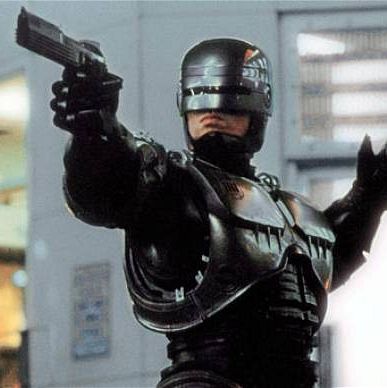
If Anthony Weiner has any hope of rebounding over the next five weeks, he’ll need to come up with some bold, broadly appealing proposals — ideas that truly make a splash, get people talking, and transform Weiner, in the minds of at least some voters, from the Candidate With the Cock-Shot Problem to the Candidate Who Wants to Do “X.”
Earlier today, Weiner took a step in that direction when he released “Even More Keys to the City” (PDF), the follow-up to the booklet of proposals he released when he first entered the race in May. There are a lot of ideas in there that might be pretty popular if people ever actually hear about them — things like ending the city income tax on individuals earning less than $40,000, or opening up 100,000 more parking spaces around the city by decreasing the no-parking zone around fire hydrants from fifteen feet to ten. But one idea that could really be a game-changer if it was ever implemented is No. 74: Require Beat Cops to Wear Cameras.
Weiner suggests that strapping a camera on to cops would protect both the New York citizenry (from police abuse) and the police themselves (from false accusations). He points out that when an identical program was instituted in Rialto, California, complaints against police officers there dropped by 88 percent and the use of force by 60 percent.
In fact, the numbers from the Rialto experiment are even more impressive than Weiner lets on: Those steep declines took place even while only half of the force wore cameras, as the Times reported in April:
The Rialto study began in February 2012 and will run until this July. The results from the first 12 months are striking. Even with only half of the 54 uniformed patrol officers wearing cameras at any given time, the department over all had an 88 percent decline in the number of complaints filed against officers, compared with the 12 months before the study, to 3 from 24.
Rialto’s police officers also used force nearly 60 percent less often — in 25 instances, compared with 61. When force was used, it was twice as likely to have been applied by the officers who weren’t wearing cameras during that shift, the study found. And, lest skeptics think that the officers with cameras are selective about which encounters they record, Mr. Farrar noted that those officers who apply force while wearing a camera have always captured the incident on video.
Such outcomes would presumably be pretty damn attractive to voters, many of whom clearly believe the police force could use more oversight: A recent poll showed that a whopping 74 percent of Democrats supported the creation of an NYPD inspector general position. At the same time, the vast proliferation of police surveillance this proposal would entail probably wouldn’t be much of a concern — the same poll measured 85 percent support among Democrats for increasing the use of surveillance cameras in public places. Whether New Yorkers like the camera proposal enough to overlook Weiner’s own camera problems remains to be seen, of course.





























